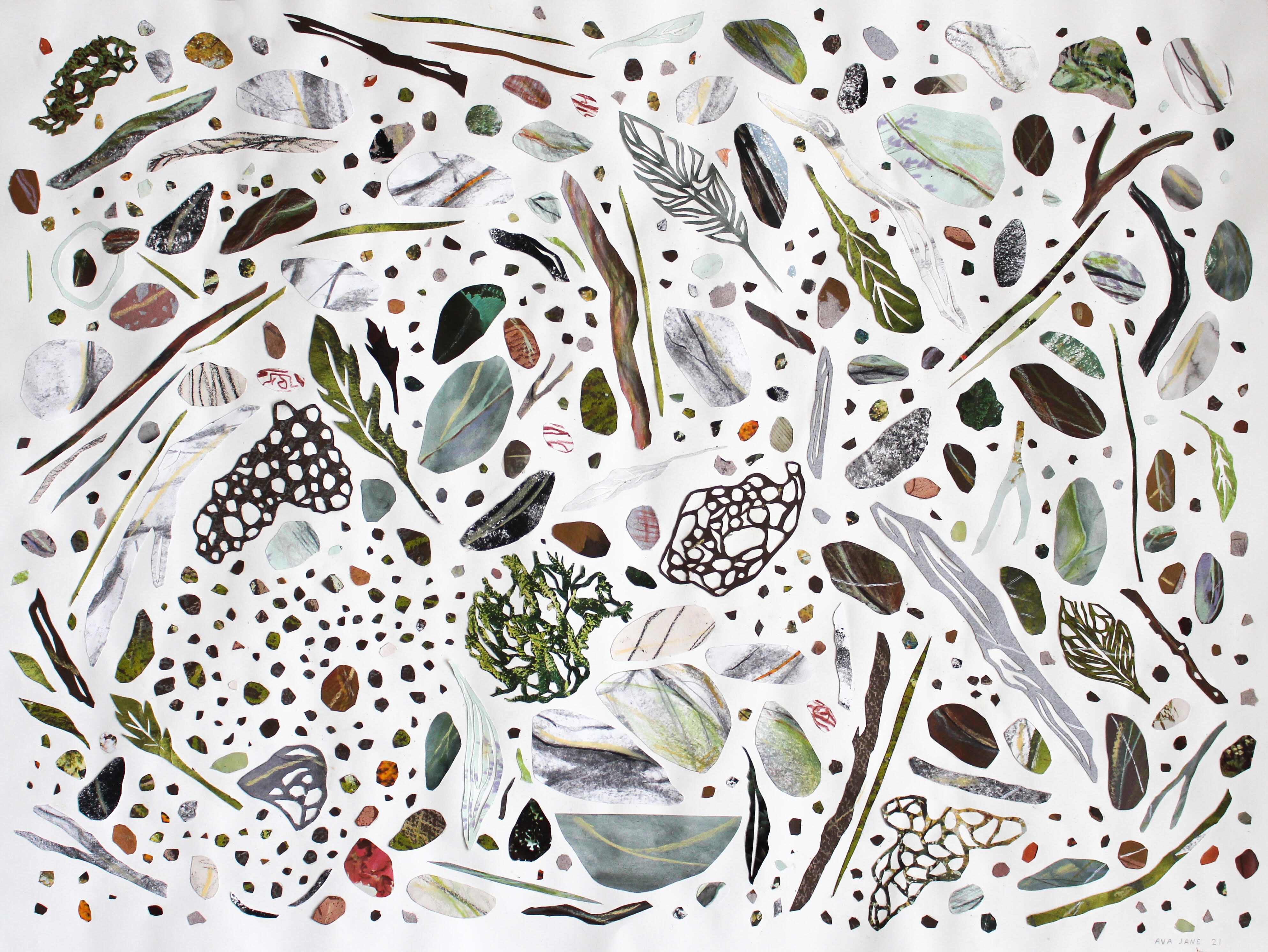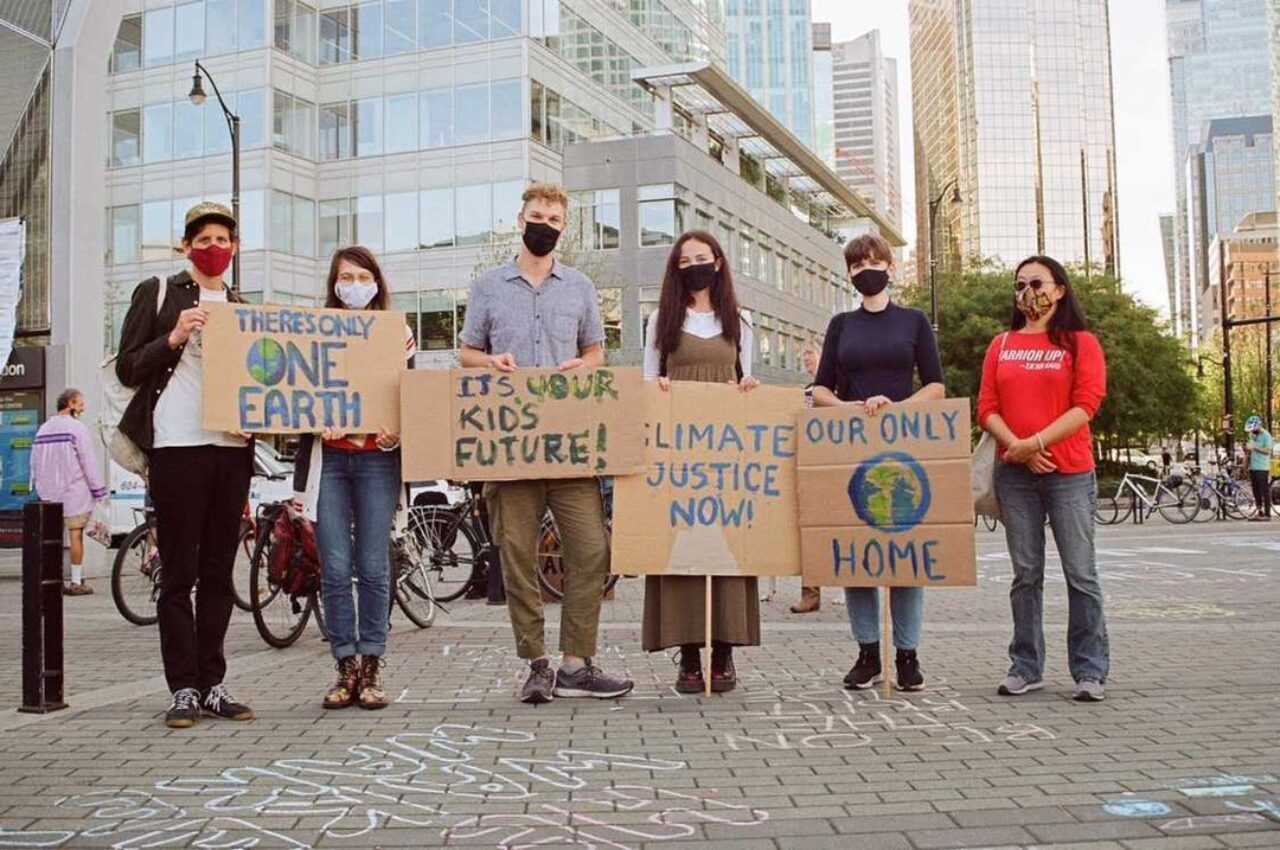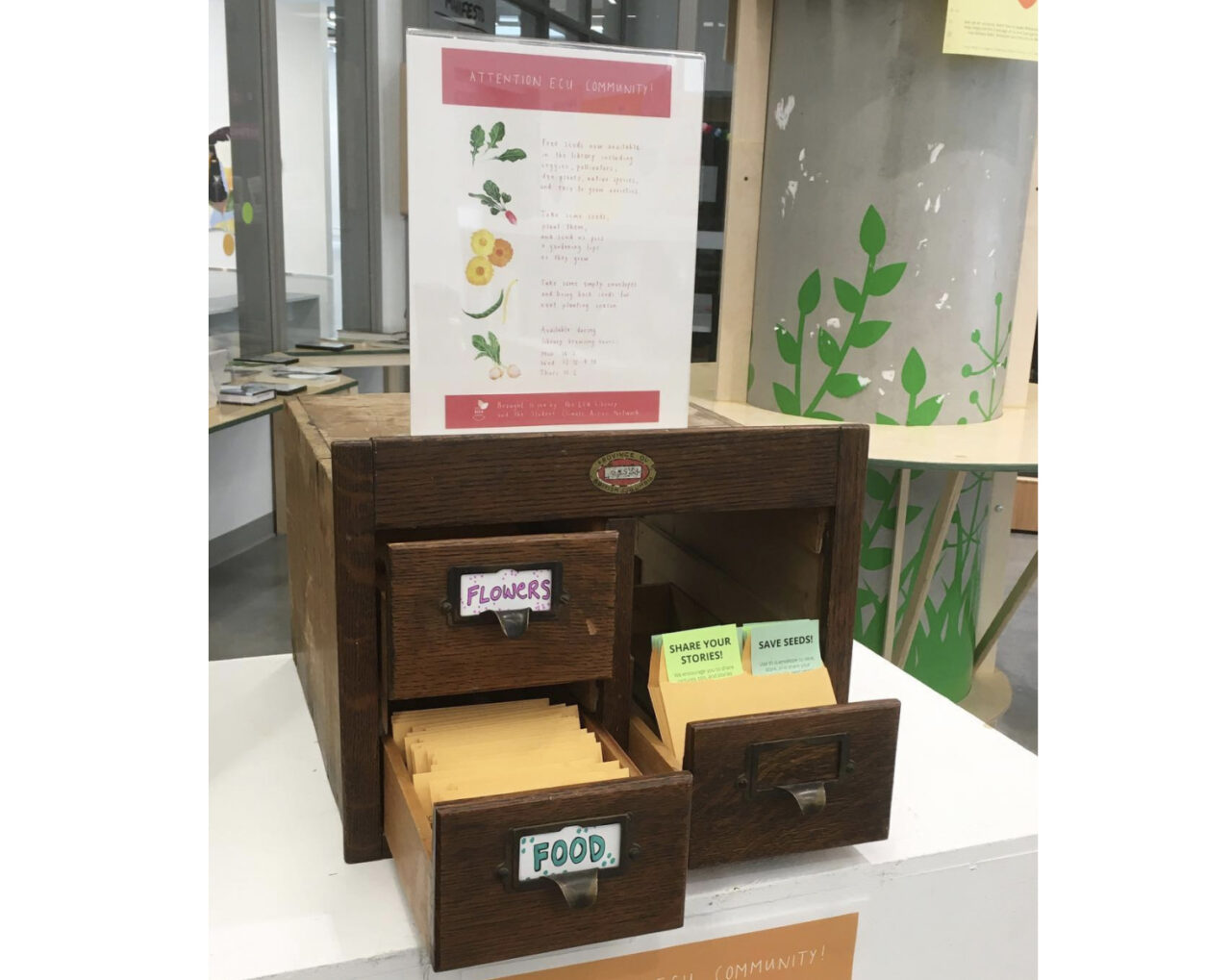Student Climate Action Network Poised for Growth at ECU in 2022

a winter walk: creek collection, a mixed media work by artist and 3rd year visual arts student Ava Buckley, was featured recently in the Student Climate Action Network's online gallery. (Image courtesy Student Climate Action Network).
Posted on | Updated
After growing its community online for the past two years, leaders of the student group say they’re excited to start connecting with their peers in person.
The Student Climate Action Network (SCAN) at Emily Carr University is seeking new members as students increasingly return to in-person campus life, says co-founder and current SCAN leader, Teagan Eve Moore.
And joining can mean a whole lot more than activism, Teagan tells me via video-chat. At its core, participating in SCAN is about being a part of a community.
“First and foremost, it’s really about connecting with each other,” Teagan says. And that can lead to other things in unexpected ways. It doesn’t all have to be really heavy thoughts about climate change or anything like that.”
SCAN was initially started in February, 2020, with the idea of putting on a group exhibition loosely centred around themes including climate issues and sustainability. But lockdown in mid-March required the group to rethink its plans. SCAN quickly shifted to using its Instagram to host an online exhibition. The response from students was enthusiastic, which got them thinking that forming an online community could be possible during the months (and years) of isolation.

SCAN members with ECU staff and faculty at a 2021 Fridays for Future event. (Image courtesy SCAN)
The online exhibition, which continues to this day, became one of SCAN’s main tools for “creating community digitally” during remote learning, Teagan tells me. Teagan’s SCAN colleague and recent ECU grad, Rebecca Wang (BFA 2021), was also central to student outreach during that time, she adds.
Rebecca, who also spoke via video-chat, says that from the beginning, SCAN’s great advantage has been its ability to accommodate students with wide-ranging interests.
“Many of the works in our online exhibition are not explicitly about environmental justice or nature or the climate crisis, nor are these topics the artists’ main focus of study,” she tells me. “Being part of SCAN doesn’t necessarily mean the person is involved in activism or is outspoken about the cause. It’s really about personal growth. So, even for people who may not be super passionate about the environment, SCAN is just a fantastic way to find friendship and community and build your organizing skills.”
SCAN partnered with the ECU Library Sustainability Committee on the Library’s Seed Swap design competition, for instance, Rebecca and Teagan tell me. For Rebecca, who graduated with a minor in curatorial studies and has gone on to curate shows including Conditional Belonging at Access Gallery, SCAN’s online exhibition also represented a first chance to test out her curatorial abilities.

The Seed Swap station at the ECU Library includes signage designed via a contest co-hosted by SCAN. (Image courtesy SCAN)
With graduation on the horizon — Teagan is now in her final year at Emily Carr majoring in visual arts with a SPACE minor — Teagan is setting SCAN up to grow as students increasingly return to on-campus classes and activities.
Gardening spaces in various places on campus present opportunities for gathering, community building and future projects. And the group has participated in Fridays for Future marches, as one way of gathering regularly around shared interests.
Teagan also hopes SCAN will soon be able to find a physical office at the university, to ensure students have a stable location to come together over shared interests. And from previous collaborations, SCAN already has a great relationship with the Emily Carr Students’ Union, Teagan notes. But most of all, she hopes to see the mostly-digital community she’s helped build start to flourish in person.
“Friendship is the most important part of this,” she says. “Maybe you want to meet people to share what you’re feeling, or maybe you want to make a difference in some way. You can meet people who care about a lot of the same things that you do, especially when we’re in this complicated time in history. And because we’re all in art and design school, there are all sorts of possibilities for workshops, events, or just playing with materials — hands-on things.”

SCAN members participate in a Fridays for Future event alongside other ECU community members. (Image courtesy SCAN)
Rebecca adds that SCAN opens up possibilities for student agency outside of the formal space of classwork.
“Whatever it is that you don’t have the opportunity for in your program, you can realize it — or just try it out — in a community space like SCAN,” she says. “You can find ways, if you don’t have opportunities, to create those opportunities yourself. You can put out the open call and people will respond!”
Students interested in learning more about SCAN, including how to participate, can reach out now via SCAN’s Instagram or by emailing scanclimateaction@gmail.com.